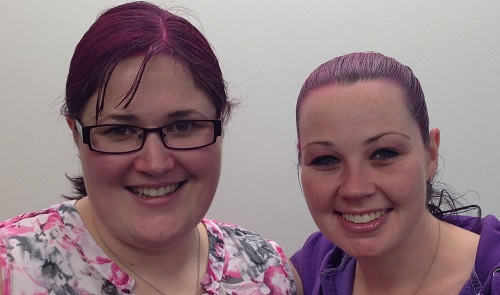Reviewing and Refreshing Your Financial Goals
Each year you should take stock of how your finances are going and see where improvements can be made. But perhaps the most important issue to address is how well you are setting your financial and lifestyle goals.
What drives your financial planning?
Most people will associate a new financial year with their tax return, the associated analysis of their income and expenses, and where improvements can be made and efficiencies found.
While these are worthy and important issues to deal with and they do require planning, they are not the central focus of what financial planning should really be about. The real driving force behind your financial planning is the ultimate lifestyle goals that your finances are aimed at achieving for you. When you have a clear and realistic grasp on what you really want out of life, this will enable you to make the decisions and build the habits that will get you there.
Goals are more than just a dollar amount
When we think of goals in a financial sense, our focus can sometimes gravitate toward a simple dollar figure. While it is important to quantify goals in dollar terms, the real focus needs to be on the things that we enjoy doing, owning and creating. In other words, what you would want to ultimately enjoy more of, if you had the time and the money.
This is a very personal question and every individual will have their own unique take on what is important to them. For some, it will be a holiday house. For others, it will be international travel, a car or indulging in a hobby or passion. The more it excites you, the greater the motivation will be to achieve it.
Once you have clearly articulated those goals, you can then build your financial plan around them. The process of saving and investing, then simply becomes a way of serving the realisation of those goals, rather than being a goal in itself.
Your Veritas Financial Adviser is the ideal sounding board
Why not arrange time to sit down with your Veritas Financial Adviser and take a fresh look at your lifestyle goals? It’s a great way to bring new energy and purpose to your financial planning.
SMSF Trustee Education
From 1 July 2014, the ATO may direct a trustee or a director of a corporate trustee of an SMSF to undertake a course of education if they have contravened superannuation law. The ATO approved SMSF Trustee Education Program has been released by CPA Australia and Chartered Accountants Australia and New Zealand. The program is provided free to members and trustees of SMSFs and has been approved by the ATO as a course of education for education direction purposes.
We encourage all trustees, both new and existing, to undertake the SMSF Trustee Education Program to improve their competency as an SMSF trustee, improve their ability to meet their regulatory obligations and reduce the risk of contravening the law in the future.
To register and complete the program, please click here
Importance of Financial Planning for the Younger Generation
Young people face significantly different financial questions than someone approaching retirement. They have finished formal education and are looking at questions about insurance needs, debt repayment, buying a home, saving and investing for retirement, and maybe even funding school fees for children.
Many young people will already have successful careers underway and are earning good incomes. The opportunity to establish the sound financial base that will carry them through their working lives and into retirement is now upon them and it will not be there forever. Many studies have shown that those who make plans and have organised their financial affairs have a much better chance of being successful and have far more peace of mind.
Long term planning does not mean you have to forego everything that being young entails. It simply requires some discipline around money management in the first instance and the establishment of good money habits. For example, one of the best strategies any young person can employ (or anyone for that matter), is the “pay yourself first” principle. Generally how most people approach saving for goals is to pay the bills and lifestyle expenses and then save what is leftover. Unfortunately, this too often means very little or nothing is left over and the planned for saving is at best erratic and often fails to meet the target.
If however every pay day you first deduct say 10% of your after tax income as savings, using the rest to pay bills and other expenses, you guarantee that progress toward your target is being made. For many young people, particularly those without mortgages and the like, this is not too big an impost on their lifestyle and they very soon do not miss the 10% saved at all.
Probably the best strategy for any young person looking to make the most of their assets and income though is to invest in a good financial adviser to guide them along the way. Financial education and literacy is still not very high in our society in general so the sooner you are on that pathway the better outcomes you will have financially.
A good adviser will ask the questions that need to be answered around your finances then put them in perspective. He/she will be able to make tangible your goals and objectives by breaking them down to the basics such as how much do I need to allocate over how many years to achieve that target. Their experience and knowledge can see beyond the 12 month window which is about as far as most people can visualise with their monetary aspirations.
They will also ensure you are protected against sickness and accident through having in place appropriate insurance covers. They will also protect you from yourself and your lack of financial experience and knowledge by providing a sounding board for the investment opportunity you read about or your best friend wants you to join them in etc. Too often we see the impetuosity of youth result in ill thought out endeavours that come crashing down around their ears.
A young person today will expect to earn millions of dollars in income over their lifetime. Protecting that asset by developing a relationship as early as possible with a quality financial adviser is probably the best investment decision anyone can make.
If you would like to get started on the pathway to financial security, please contact our office to arrange an appointment.
Mineral Resource Rent Tax Repeal – What This May Mean for You
The Mineral Resource Rent Tax Repeal legislation was recently passed by the Senate and was passed by Royal Assent on 5th September 2014. As part of the negotiations this legislation also included other budget measurers that may affect you. These measures include:
Individuals
- Superannuation Guarantee (SG) Rate Changes: The current SG rate of 9.5% will be in place until 30 June 2021. It will then increase a half a percentage point annually (1st July) until it reaches 12% on 1 July 2025.
- Low income superannuation contribution (LISC): Concessional Contributions for low income workers will continue to receive the LISC until 30 June 2017. The Government had planned to cease this as of 1 July 2013.
- Income Support Bonus (ISB) for social security recipients: The ISB is an indexed, non-means tested payment that is paid twice annually to eligible social security recipients. The ISB will now be removed from 31 December 2016.
- Schoolkids Bonus: The schoolkids bonus will now be removed from 31 December 2016. From 5 September 2014 (date of Royal Assent) to 31 December 2016, an additional income test will apply. Individuals must have an adjusted taxable income of less than $100,000 to receive the schoolkids bonus.
Small Businesses and Companies
- Abolition of the company loss carry-back from 1 July 2013: The loss carry-back cannot be claimed for the whole of the 2013/14 financial year. The ATO will be contacting companies that have claimed the loss carry-back tax who are now no longer eligible. The offset will also be removed from the affected assessment and the company will be sent a notice of amended assessment. Penalties and interest will not be imposed by the ATO on any amount payable on the amended assessment if payments are made within a reasonable time.
- Reduction of the instant asset write-off from 1 January 2014: The reduced threshold of assets costing less than $1,000 will apply from 1 January 2014. Assets costing $1,000 or more will need to be depreciated in the general small business pool. The previous threshold of assets costing less than $6,500 will still be eligible for immediate write off for those assets that are installed and ready for use by small business between 1 July 2013 and 31 December 2013.
- Abolition of accelerated depreciation for motor vehicles from 1 January 2014: From 1 January 2014, Motor Vehicles will only be immediately deductable if they cost less than $1,000. Motor Vehicles costing $1,000 or more after 31 December 2013 will need to be depreciated in the general small business pool. Those motor vehicles acquired and ready for used between 1 July 2013 and 31 December 2013 will still be eligible for an immediate deduction of up to $5,000.
- Amendments to Returns – Small business write off concessions: Taxpayers that have lodged their 2013/2014 return under the previous law should seek amendments to reduce their depreciation claim. Penalties will not apply (eg shortfall on interest charge) if taxpayers request an amendment to their previous assessment within a reasonable amount of time.
Medibank Private Initial Public Offering
On 28th September 2014 Mathias Cormann, Minister for Finance, announced the opening of pre-registration for the Medibank Private Share Offer. Pre-registration is only open to eligible Australian resident retail investors.
Pre-registering for a Prospectus is not a commitment to buy shares – it simply lets Medibank Private know that you are interested in reading the Prospectus when it becomes available. You should only pre-register once; however if you are also acting in another capacity (such as a trustee of a SMSF), you may also pre-register in that capacity.
Australian residents who pre-register to receive a prospectus and then apply for shares can receive a preferential allocation of shares. Eligible Medibank policyholders can also receive a greater preferential allocation than those non-policy holders when pre-registering for the shares.
Pre-registration for the Medibank Private Share Offer is now available on https://www.medibankprivateshareoffer.com.au and through the Medibank Private Share Offer Information Line by calling 1800 998 778 8am to 10pm (Sydney time), Monday to Friday. The pre-registration for retail investors will close on 15th October 2014, with further details of the offer to be provided in the prospectus due in late October 2014.
National Breast Cancer Awareness Month
October is Australia’s Breast Cancer Awareness Month, and with eight women in our office of nine, Veritas Wealth Solutions and Jodie Dickson Accounting & Superannuation are proud to support the National Breast Cancer Foundation research into the prevention and cure of breast cancer.
We have raised a total of $1,395.45 so far with our online fundraising and “Boobalicious” morning tea on Friday 3rd October, with Allison and Jess also volunteering to colour their hair pink for the occasion!


